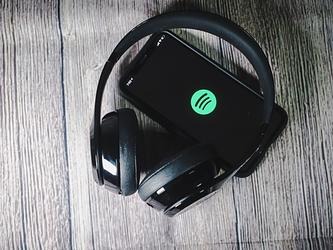How Spotify collected personal stories during Covid-19
In a virtual session led by streaming platform Spotify and digital insight and strategy consultancy Sparkler, delegates heard how a qualitative research project helped to understand changes in listening behaviour Spotify’s internal data had spotted.
Dominika Mazur, senior user researcher, growth org, at Spotify, said: “When the pandemic hit, there were changes in behaviour we didn’t understand – a 54% increase in listeners making nostalgia-themed playlists.
"Why are people being nostalgic? Why are they listening to music from the 50s, 60s, 70s and 80s? Why these decades and not more current music? And why were people sharing more on social media?
“We had some guesses and hypotheses, but we didn’t want to make assumptions and were worried we were missing out on trends. We needed to know what was happening in our listeners’ lives.”
Spotify and Sparkler therefore started a longitudinal community study than ran for six months last year using an online diary method to understand how people were reacting.
The research focused on three markets – the US, Brazil and Indonesia – and had 30 to 40 contributors per nation, with an average of 80 contributions for each person.
Researchers working on the project were based in Scandinavia, the US and UK, and there were partner organisations on the ground to help with cultural differences and translation.
Gemma Proctor, managing consultant at Sparkler, said: “We didn’t want to lose that personal empathy and the simple realities of meeting a person face-to-face, visiting them in their own homes and experiencing their culture with them.
“We needed to fully immerse ourselves in the lives of people living thousands of miles away, often in very different situations from us. We needed to make sure our solution was intimate but not intrusive and was sympathetic to what was going on.”
The programme raised five lessons for the research team and Spotify. Rose Blyth, senior consultant at Sparkler, said: “This project allowed us to stop and listen to participants, and not just bombard them with research objectives.”
The second lesson was to design projects with sensitivity to it taking place during a global emergency, and the third was to use data triangulation to interpret the evidence collected.
A fourth was to rethink the use of research quotas, as many people fit into numerous standard sample groups. Blyth said it was important to focus on patterns based on “personal experience” and bring people’s stories to life, rather than be preoccupied by data derived from typical demographic characteristics.
Finally, for Spotify, Mazur said the lesson was about its responsibility as a company to help people, citing a 145% increase in people listening to health and wellbeing podcasts during Covid-19 lockdowns.
“We were a company built on fun and entertainment, and suddenly we see people using us for these vital functions,” Mazur explained. “This made us realise the expectations of us as a streaming service and technology company were higher, and gave us an opportunity to build a stronger bond with our listeners.”
Book today to join the live event and access all content via the MRS on demand service – mrsannualconference.com/book

We hope you enjoyed this article.
Research Live is published by MRS.
The Market Research Society (MRS) exists to promote and protect the research sector, showcasing how research delivers impact for businesses and government.
Members of MRS enjoy many benefits including tailoured policy guidance, discounts on training and conferences, and access to member-only content.
For example, there's an archive of winning case studies from over a decade of MRS Awards.
Find out more about the benefits of joining MRS here.













0 Comments